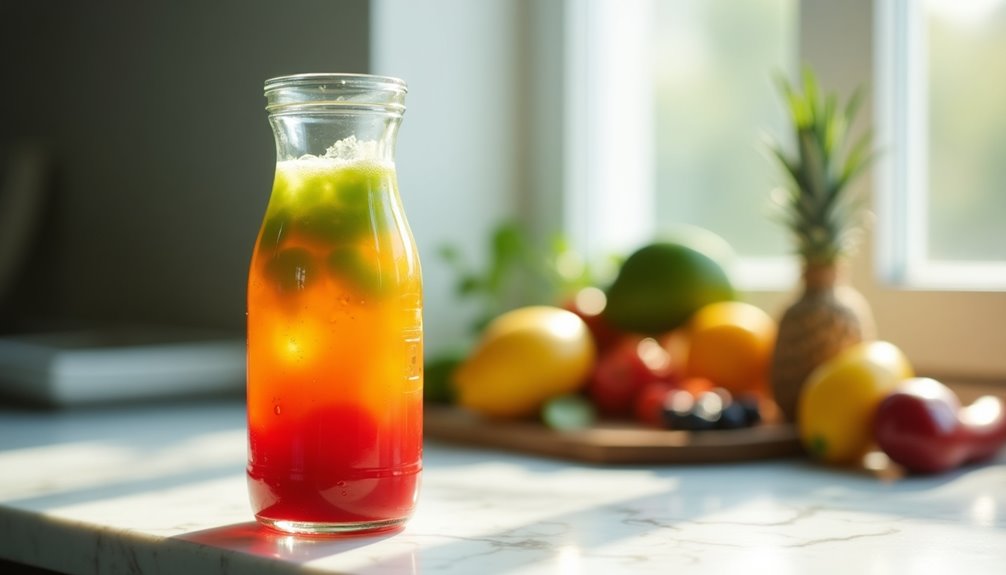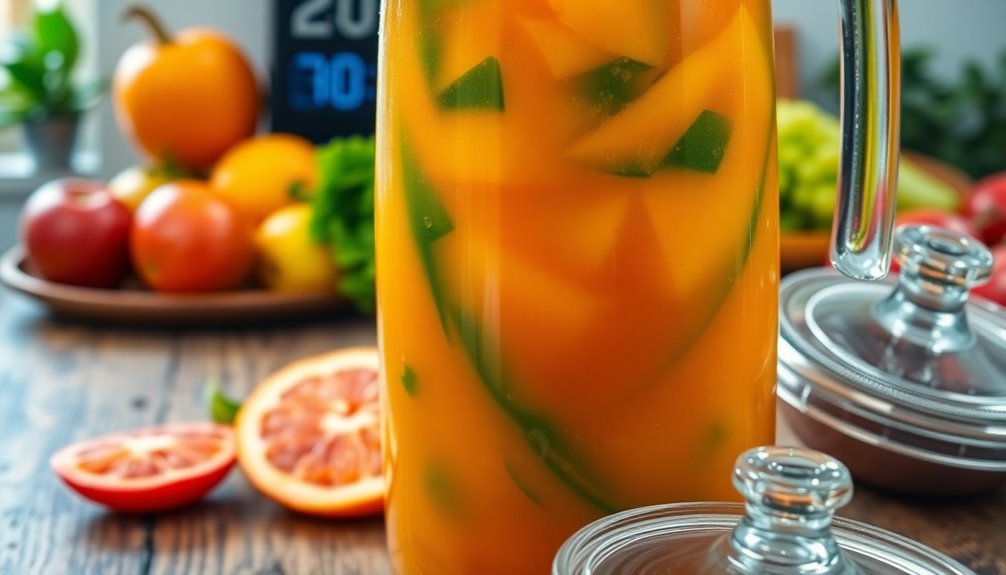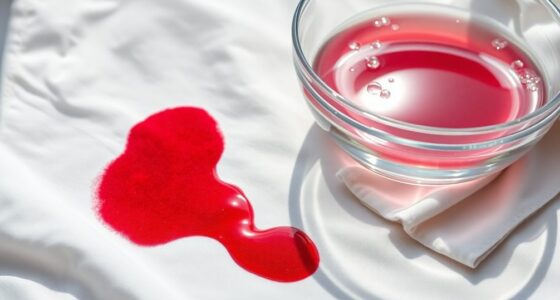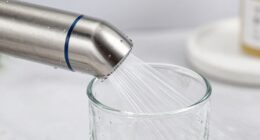Cold-pressed juice is usually good in the fridge for 3 to 5 days if you store it properly, ideally between 34 to 40°F. For the best flavor and health benefits, try to drink it within 72 hours. Vegetable-based juices tend to last longer than fruit juices because of their lower sugar content. Keep it in an airtight container to avoid spoilage. Want to learn about how to spot spoilage signs and maximize your juice experience?
Key Takeaways
- Cold-pressed juice typically lasts 3 to 5 days in the fridge when stored at 34 to 40°F (1.1 to 4.4°C).
- Vegetable-based juices generally have a longer shelf life than fruit-based juices due to lower sugar content.
- It's best to consume fresh juice within 72 hours to maximize flavor and nutrient intake.
- Signs of spoilage include strong smells, color changes, and mold; trust your senses for safety.
- Always assess juice quality beyond expiration dates, as storage conditions greatly affect freshness.

When you're enjoying cold-pressed juice, it's important to know how long it stays fresh in the fridge. Typically, cold-pressed juices have a juice shelf life of about 3 to 5 days when stored properly. Proper storage means keeping your fresh juice at temperatures between 34 to 40°F (1.1 to 4.4°C). If you don't follow these guidelines, you risk the shelf life dropping to zero days, so pay attention to how you handle and store your juice after making or purchasing it.
You might wonder why some juices last longer than others. Generally, vegetable-based juices tend to have a longer shelf life compared to fruit-based blends. The reason lies in their lower sugar content, which can accelerate spoilage. High acidity in fruit juices can lead to quicker fermentation, resulting in unpleasant flavors and a shorter lifespan for those delicious juices. If you're looking to maximize your juice consumption, consider opting for more vegetable-based options if you plan to store them for a few days.
To get the most out of your cold-pressed juices, it's ideal to consume them within 72 hours. Nutrient content begins to degrade shortly after juicing, and the longer you wait, the less beneficial nutrients you'll get. Fresh juice is at its peak in terms of flavor and health benefits right after it's made, so the sooner you drink it, the better.
If you need to store them, always ensure that the container is airtight, as exposure to air can also lead to quicker spoiling. Keep an eye out for signs of spoilage to ensure you're drinking safe juice. If you notice strong fermented smells, color changes to a grayish or dull hue, or even the presence of mold, it's time to discard the juice. Consuming spoiled juice can lead to unpleasant experiences and potential health risks. It's better to be safe than sorry, so trusting your senses can help you avoid any mishaps.
Finally, remember that the expiration date isn't always a clear indicator of your juice's freshness. Even if it's within the stated period, factors like how it was processed, the ingredients used, and how it's been stored can all affect its longevity.
Frequently Asked Questions
How Long Do Pressed Juices Last in the Fridge?
When you make pressed juice, it's essential to know how long it lasts in the fridge.
Typically, you can expect it to stay fresh for about 3-5 days when stored correctly.
Factors like the type of ingredients and how you store it can affect its shelf life.
To maximize freshness, keep it in an airtight glass container and consume it within 72 hours for the best nutrition and flavor.
Can I Drink Cold-Pressed Juice After 5 Days?
Imagine sipping on a vibrant, fresh elixir, bursting with nutrients and flavor.
But can you really drink cold-pressed juice after 5 days? It's a gamble you don't want to take. After this period, the juice can turn into a haven for harmful bacteria, and its taste and nutritional value plummet.
If you notice any separation, dull color, or funky smells, toss it.
Stick to the first 3-5 days for the best experience!
How Long Does Juice Last in the Fridge After Juicing?
After juicing, your juice typically lasts about 3-5 days in the fridge if you store it properly.
Keep it in airtight glass containers to maintain freshness.
You should watch for signs of spoilage, like separation or off smells, to decide if it's still good.
For the best taste and nutrition, try to drink it within 72 hours.
That way, you'll enjoy all the vibrant flavors and health benefits!
Why Does Cold-Pressed Juice Last so Long?
You might wonder why cold-pressed juice lasts longer than regular juice. The secret lies in the cold-pressing process, which minimizes oxidation and keeps nutrients intact.
High pressure prevents microbial growth, extending shelf life. Bottling it immediately after extraction reduces exposure to air and light, further enhancing freshness.
Plus, storing it at the right temperature and using natural preservatives like vitamin C helps maintain its quality for several days, making it a healthier choice.
Conclusion
In conclusion, pressed juice is usually good for about 3 to 5 days in the fridge. Think of it like a fresh bouquet of flowers; while they look vibrant and lively for a few days, they'll start to wilt if you don't use them in time. So, when you've got that delicious juice, enjoy it while it's fresh! Just remember, the sooner you sip, the more nutrients and flavor you'll savor.
Cindy thoroughly researches juicing trends, techniques, and recipes to provide readers with practical advice and inspiration. Her writing style is accessible, engaging, and designed to make complex concepts easy to understand. Cindy’s dedication to promoting the advantages of juicing shines through her work, empowering readers to make positive changes in their lives through the simple act of juicing.











